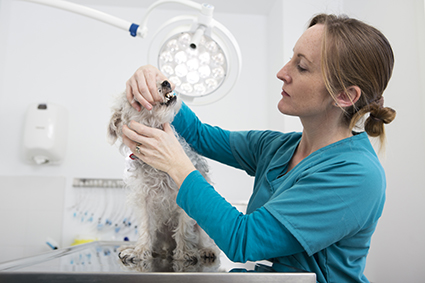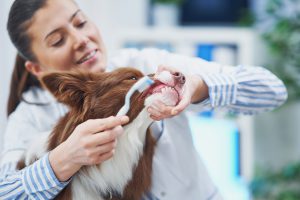Dental problems can be a common issue for dogs.
It can lead to a variety of health problems if left untreated. Just like humans, dogs need regular dental care to keep their teeth and gums healthy. In this article, we’ll take a look at some common dental problems in dogs, how to prevent them, and what to do if you notice any signs of dental problems in your pet.
Dental problems in dogs can range from mild to severe, and can impact a dog’s overall health and wellbeing. Some of the most common dental problems in dogs include:
- Periodontal disease: This is a bacterial infection that affects the gums and teeth. It is caused by a buildup of plaque and tartar on the teeth, which can lead to inflammation, pain, and tooth loss. Periodontal disease can also lead to more serious health problems, such as kidney and heart disease.
- Broken or chipped teeth: This can occur due to trauma, such as from chewing on hard objects or from a fall. Broken teeth can be painful and can lead to infection if left untreated.
- Tooth decay: Just like humans, dogs can experience tooth decay. This can be caused by a diet high in sugar and carbohydrates, as well as poor dental hygiene.
- Gingivitis: This is an inflammation of the gums, and can be caused by a buildup of plaque and tartar on the teeth. Gingivitis can be painful and can lead to tooth loss if left untreated.
- Oral tumors: Tumors can occur in the mouth and can be benign or malignant. Oral tumors can cause pain, difficulty eating, and other health problems.
Preventing Dental Problems in Dogs
The good news is that many dental problems in dogs can be prevented with regular dental care. Here are some tips for preventing dental problems in your pet:
- Regular dental cleanings: Just like humans, dogs need regular dental cleanings to remove plaque and tartar buildup. Your veterinarian can perform a dental cleaning under anesthesia, which will remove any buildup on the teeth and ensure that your pet’s mouth is healthy.
- Brushing your dog’s teeth: Regular brushing can help remove plaque and tartar from your dog’s teeth, and can also help prevent bad breath. Use a soft-bristled toothbrush and a pet-friendly toothpaste to brush your dog’s teeth at least once a week.
- Feeding a healthy diet: A diet high in sugar and carbohydrates can contribute to tooth decay and other dental problems. Feeding your dog a healthy diet that is low in sugar and carbohydrates can help prevent dental problems.
- Providing dental chews and toys: Chewing on toys and dental chews can help keep your dog’s teeth clean and healthy. Look for toys and chews that are specifically designed to promote dental health.
- Regular veterinary check-ups: Regular check-ups with your veterinarian can help identify dental problems early and prevent them from becoming more serious.
What to Do if You Notice Signs of Dental Problems in Your Dog
If you notice any signs of dental problems in your dog, it’s important to take action right away. Here are some signs to look out for:
- Bad breath
- Red or swollen gums
- Bleeding from the gums
- Loose or missing teeth
- Difficulty eating or chewing
- Drooling
- Pawing at the mouth
If you notice any of these signs, schedule an appointment with your veterinarian right away. Your veterinarian can perform a dental exam and determine the best course of treatment. Treatment may include a dental cleaning, antibiotics, or even tooth extraction in more severe cases.






